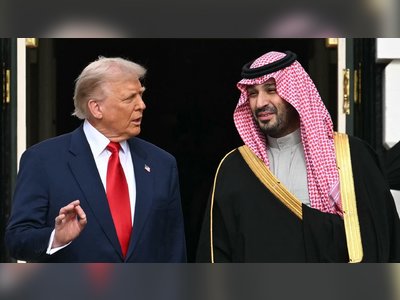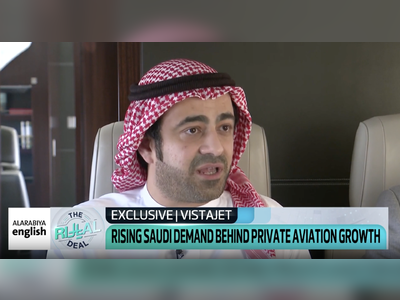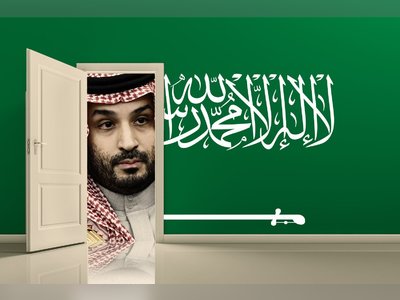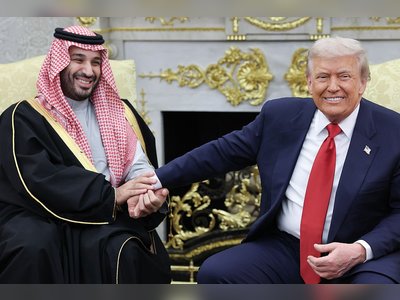
Megaproject Costs Mount as Saudi Crown Prince’s Ambitions Strain Kingdom’s Finances
Independent reviews warn that Crown Prince Mohammed bin Salman’s high-cost mega-projects are inflicting financial pressure on Saudi Arabia’s sovereign wealth fund
Saudi Arabia is experiencing mounting financial strain as Crown Prince Mohammed bin Salman’s grand economic and infrastructure ambitions face delays and escalating costs, according to several recent reports.
A leading analysis reveals that the country’s sovereign wealth vehicle, the Public Investment Fund (PIF), valued at some $925 billion, is shifting away from the flagship real-estate projects that previously dominated its agenda—such as the visionary NEOM smart city and other “vanity” developments.
These initiatives are now being scaled back or re-prioritised amid rising scepticism over their ability to deliver returns.
According to a report, PIF’s average annual return slipped to 7.2 per cent for the period through 2024, down from 8.7 per cent at the end of 2023, after the fund recognised impairments linked to stalled gigaprojects.
One analyst commented that Riyadh appears to be ‘‘paying investors to come’’ rather than attracting committed private capital, raising questions about the sustainability of its economic transformation strategy.
International rights and policy organisations have also criticised these large-scale undertakings for their social and fiscal consequences.
A detailed review found that PIF-backed projects in Saudi Arabia’s reform agenda have resulted in evictions, labour abuses and substantial state expenditures without clear private-sector involvement or transparent budgeting.
The shift in PIF strategy was formally signalled in late October, with insiders confirming a new five-year plan concentrating on sectors such as logistics, artificial intelligence, rare-earth mining and religious tourism—sectors seen as more likely to generate returns swiftly and sustain the non-oil diversification imperative.
The pivot underscores that some earlier expenditure on high-profile developments may have outpaced fiscal discipline and economic logic.
Observers say the case illustrates the broader risk Saudi Arabia faces in transforming its economy: grand visions require careful financial calibration and robust funding models, yet the kingdom appears to be absorbing the cost without the commensurate private-capital inflows.
While Crown Prince Mohammed bin Salman has succeeded in repositioning the kingdom globally and opening its society and economy in ways previously unthinkable, the emerging challenge is to translate ambition into sustainable value for the Saudi people—without the burden falling disproportionately on the public purse.
A leading analysis reveals that the country’s sovereign wealth vehicle, the Public Investment Fund (PIF), valued at some $925 billion, is shifting away from the flagship real-estate projects that previously dominated its agenda—such as the visionary NEOM smart city and other “vanity” developments.
These initiatives are now being scaled back or re-prioritised amid rising scepticism over their ability to deliver returns.
According to a report, PIF’s average annual return slipped to 7.2 per cent for the period through 2024, down from 8.7 per cent at the end of 2023, after the fund recognised impairments linked to stalled gigaprojects.
One analyst commented that Riyadh appears to be ‘‘paying investors to come’’ rather than attracting committed private capital, raising questions about the sustainability of its economic transformation strategy.
International rights and policy organisations have also criticised these large-scale undertakings for their social and fiscal consequences.
A detailed review found that PIF-backed projects in Saudi Arabia’s reform agenda have resulted in evictions, labour abuses and substantial state expenditures without clear private-sector involvement or transparent budgeting.
The shift in PIF strategy was formally signalled in late October, with insiders confirming a new five-year plan concentrating on sectors such as logistics, artificial intelligence, rare-earth mining and religious tourism—sectors seen as more likely to generate returns swiftly and sustain the non-oil diversification imperative.
The pivot underscores that some earlier expenditure on high-profile developments may have outpaced fiscal discipline and economic logic.
Observers say the case illustrates the broader risk Saudi Arabia faces in transforming its economy: grand visions require careful financial calibration and robust funding models, yet the kingdom appears to be absorbing the cost without the commensurate private-capital inflows.
While Crown Prince Mohammed bin Salman has succeeded in repositioning the kingdom globally and opening its society and economy in ways previously unthinkable, the emerging challenge is to translate ambition into sustainable value for the Saudi people—without the burden falling disproportionately on the public purse.







